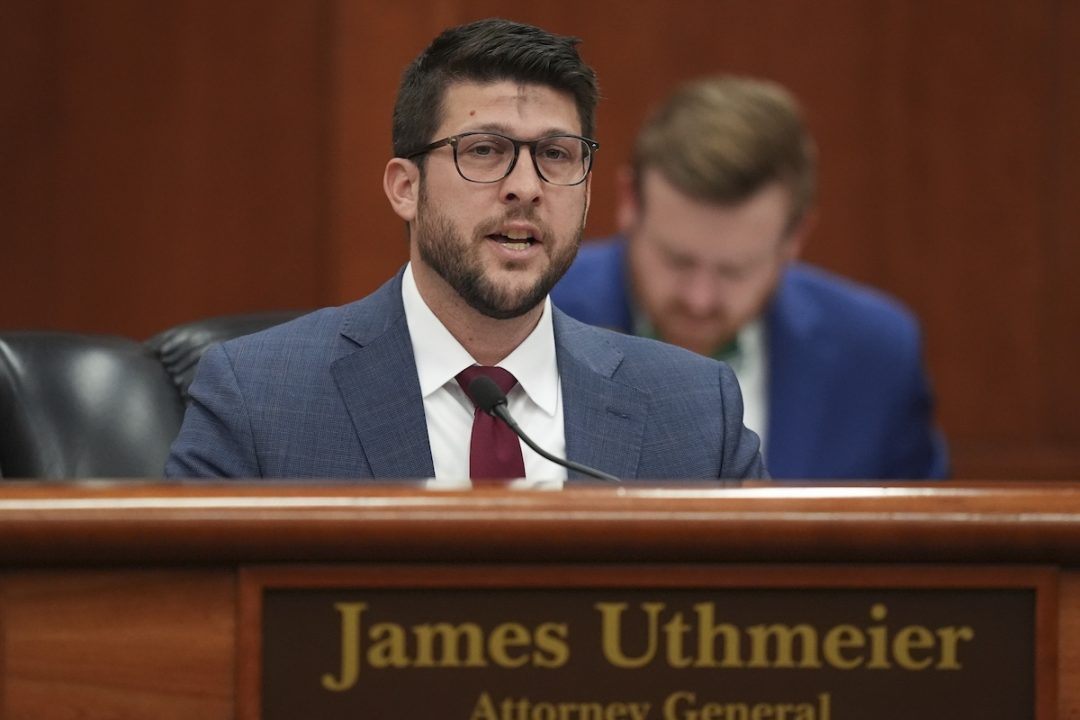
With “each decision … unabashedly based not on law,” the Court moves “one step closer to being reminded of [its] impotence,” warned late Justice Antonin Scalia in his Obergefell v. Hodges dissent (2015). Now, a decade later, the judiciary has just gotten a major reminder.
That is, an Obama-appointed activist judge recently “ordered” Florida Attorney General James Uthmeier to halt a state immigration law’s enforcement. And the people-elected realist Uthmeier has responded, saying, in essence:
Go pound sand.
As Fox News reported Friday:
The law allows for misdemeanor charges against illegal immigrants who enter Florida and hope to avoid federal immigration officials.
“The judge wants me to put my stamp of approval on an order prohibiting all state law enforcement from enforcing Florida’s immigration laws when no law enforcement are party to the lawsuit,” he [Uthmeier] said, as the ACLU’s suit is being adjudicated before Obama-appointed Miami federal judge Kathleen Williams.
“I’m just not going to do that. We believe the court has overstepped and lacks jurisdiction there, and I will not tell law enforcement to stop fulfilling their constitutional duties,” Uthmeier … told Fox News Digital.
“… The ACLU is dead set on obstructing President Donald Trump’s efforts to detain and deport illegals, and we are going to fight back. We will vigorously defend our laws and advance President Trump’s agenda on illegal immigration.”
The lawsuit that spurred the injunction alleges Florida’s law violates the Supremacy Clause….
Stay in Your Lane, Your Honor
As to the AG’s reasoning, the Miami Herald provided more detail, writing Wednesday:
Uthmeier’s office argued that the immigrant groups’ lawsuit only applies to his office and state prosecutors in Florida, noting that “a court’s judgment binds only the parties to a suit.”
Lawyers for his office argued the judge’s ruling does not apply to “independent” law enforcement agencies, such as the Florida Highway Patrol, the Florida Department of Law Enforcement, county sheriffs’ offices and local police.
“They are not parties,” the attorney general’s office asserted, because they are not “in active concert or participation with” his office and state prosecutors in Florida.
Uthmeier also emphasized that Williams’ application of the order to non-parties was an “after-the-fact expansion” of it. This was “wrong,” he said.
As for Judge Williams, she said she was “shocked” that the AG defied her “order.” A hearing is scheduled, too, for May 15, during which Uthmeier may be found in contempt. Yet maybe Williams, and most of the judiciary, need to be “shocked” — back into reality. After all, Constitution-conversant observers have long been shocked at how so many judges have contempt for the Constitution. This they exhibit every time they violate it in the name of imposing an agenda from the bench.
Practical Matters
To paraphrase the paraphrase of President Andrew Jackson, “The courts have made their decision; now let them enforce it.” Note here, too, that Jackson was referencing a case, Worcester v. Georgia (1832), somewhat mirroring the current one. It also involved a state that was ignoring a federal court “order.”
Now consider that as RedState points out, it
seems that if the Florida AG is to be brought in to face contempt charges, the person likely to be tasked with bringing him in would be U.S. Marshal Greg Leljedal of the Northern District of Florida.
And now look at this:
“They seem to be on remarkably good terms,” RedState notes.
Of course, maybe Leljedal is a go-by-the-book (the wrong book) type. He could say to his apparent ally, “Sorry, James, I love ya’, man. But the law is the law — duty calls. Hands behind your back.” Except for one thing: The United States Marshals Service (part of the Department of Justice) is within the executive branch.
And President Donald Trump controls the executive branch.
So if he, like Jackson, refuses to use federal power to impose the court decision on the state officials, all Judge Williams can do is stamp her imperious, adventuristic foot. (This said, federal power could also be resisted, by state power.)
A Government of, by, and for Judges?
There’s also the impracticality of treating judges as if they’re kings. After all, there are approximately 865 federal judges, district and circuit, in the United States. So, want to stymie the president’s agenda? Merely go judge shopping and find just one of the 865 to rule your way.
This can be done with every single issue, too. Just run out the clock, keeping executive actions largely tied up in court until the president’s four-year term expires. And this is accomplished through judges who, unlike the president, aren’t elected by the people, but are appointed for life. The appointed trump the elected.
“But,” some may say, “the law is the law.” True — except for one thing:
That’s not the law. Judicial supremacy is not in the Constitution.
Like Napoleon, They Crowned Themselves
In point of fact, judicial supremacy was declared by the courts themselves, notably in the Marbury v. Madison opinion (1803). This SCOTUS decision declared that the judiciary must be the ultimate arbiter of laws’ and actions’ constitutionality. Translation:
The courts gave the courts their trump card (and Trump card) power.
Well, that’s like me crowning myself King of America and saying, “Now I get to rule. And you have to obey me.” How would that fly?
As to this, there’s a reason Thomas Jefferson said in 1819 that if the judicial-supremacy opinion is valid, “then indeed is our Constitution a complete felo de se” (act of suicide).
There’s a reason a 5th Circuit judge pressed Barack Obama’s Justice Department in 2012, after Obama had spoken dismissively of the courts, to submit a memo on the administration’s position on judicial supremacy.
And there’s a reason late Justice Antonin Scalia issued the aforementioned 2015 warning about the courts’ impotence. To wit:
Judicial supremacy is a myth.
That’s why Jefferson was incredulous about it, the 5th Circuit judge was insecure about it, and Scalia warned that the Court could be told to forget about it.
And this myth has spawned myth-makers, black-robed lawyers who imagine the Constitution dictates things it doesn’t. They impose these myths on the rest of us, too. It’s high time we imposed on them what the Constitution does dictate: Their limited, weakest-branch role.




